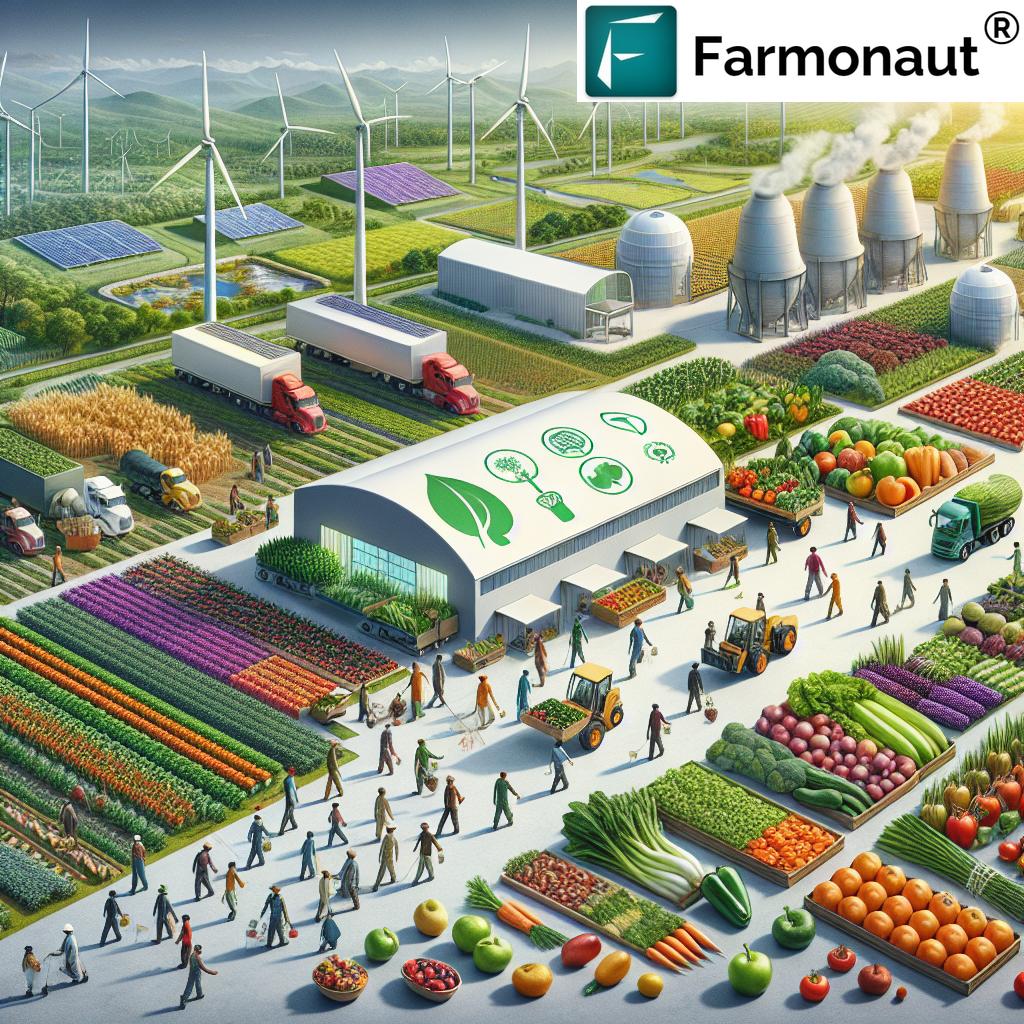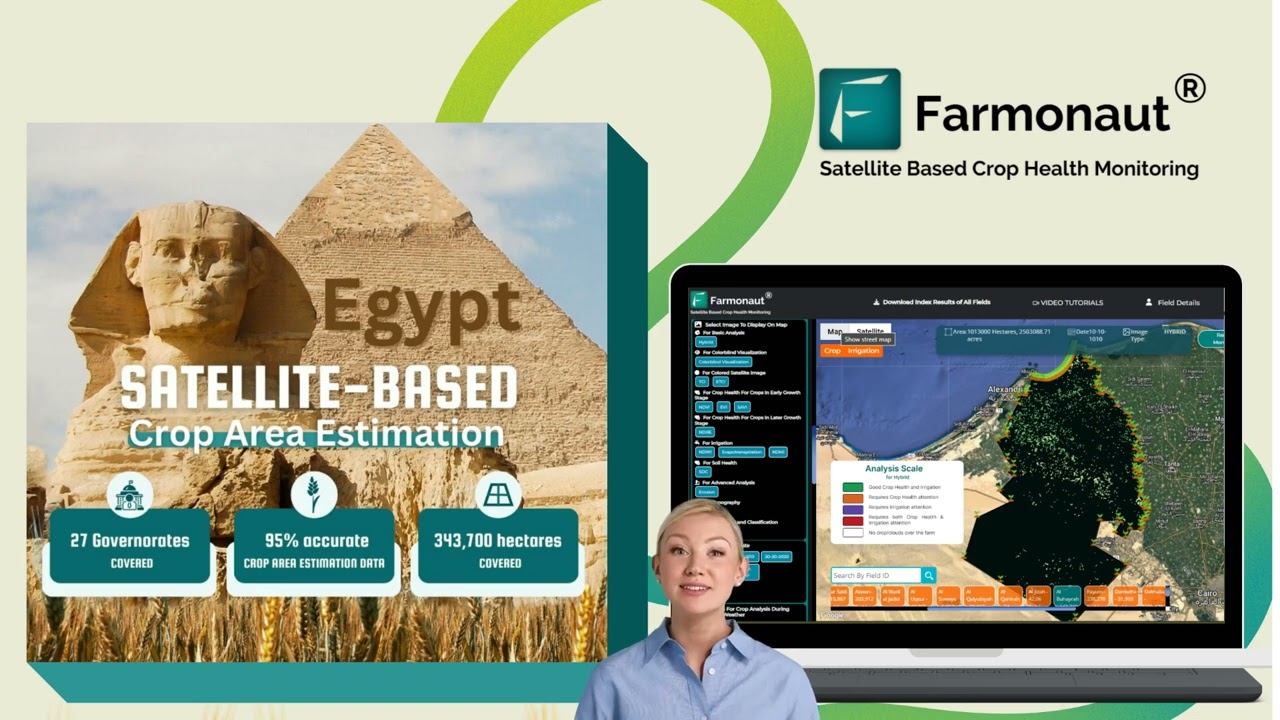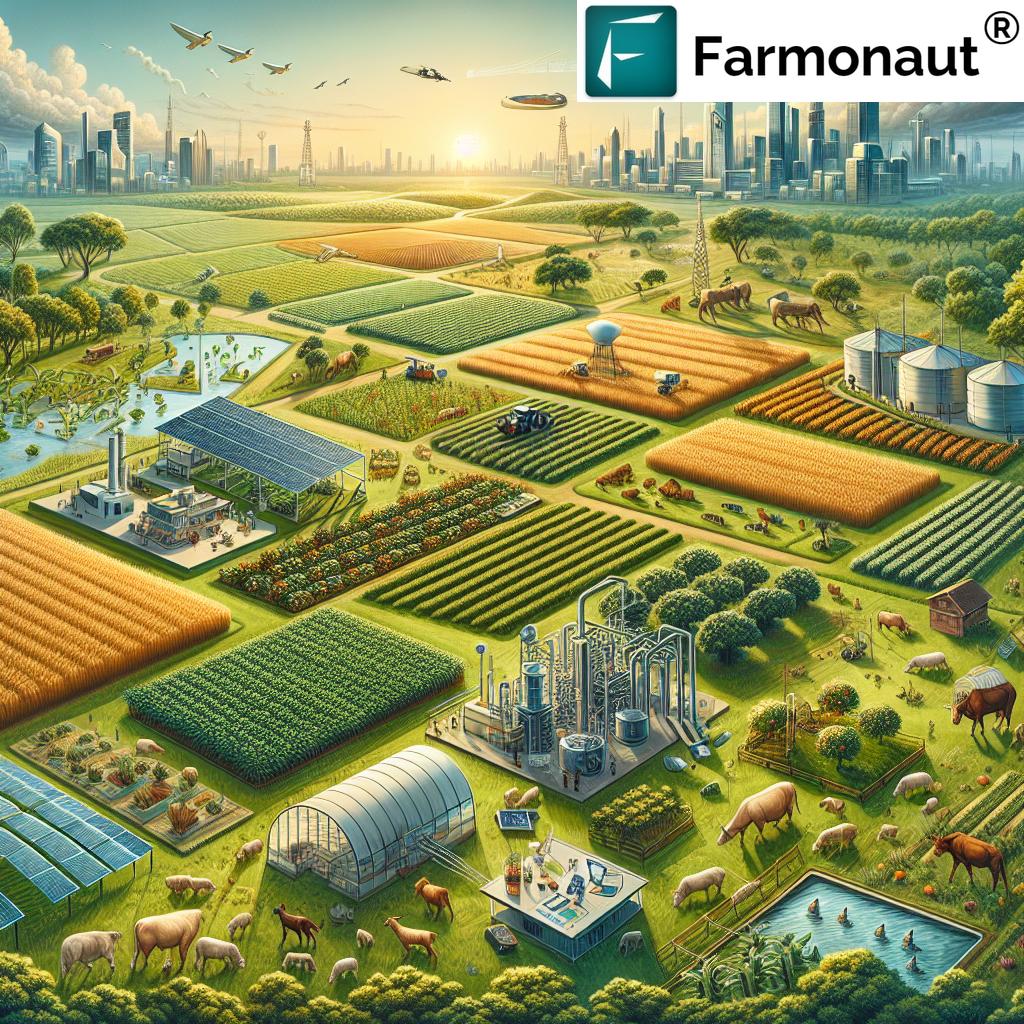Food Security in Asia: $40B Boost for Sustainable Agriculture
“Asia is investing $40 billion to strengthen sustainable agriculture and food security through advanced nutrition and resilient supply chains.”
Introduction: The Critical Role of Food Security in Asia and the Pacific
Food security in Asia and the Pacific stands at a historic crossroads. With more than half of the world’s undernourished population residing in developing Asia, and as environmental impacts of food production threaten to intensify due to climate change, the region faces formidable challenges—and unparalleled opportunities.
Developing resilient food systems is not only a question of regional well-being, but also a critical pillar for sustained global food security. Asia’s food systems account for 70 percent of global water use, 50 percent of habitable land, and 80 percent of biodiversity loss, employing nearly 40 percent of the region’s workforce.
The stakes are immense. Structural transformation, technological innovation, and significant funding commitments are reshaping the landscape for farmers, agribusinesses, and governments across the continent. The Asian Development Bank’s (ADB) USD 40 billion food security program, announced at the 58th Annual Meeting in Milan (May 5, 2025), is set to redefine the region’s agricultural future—spanning everything from nutrition improvement programs and production to resilient supply chains and digital technology in agriculture.
Global Context: The Urgency of Food Security Initiatives in Asia
“Transforming agricultural value chains in Asia could impact food security for over 4.5 billion people across the continent.”
The vulnerabilities of sustainable food systems are being exposed by a convergence of unprecedented droughts, floods, and heat waves. In 2022, ADB pledged USD 14 billion to ease the regional food crisis. Within just two years, the urgency of the food security challenge led to an expanded commitment: an additional USD 26 billion is now being allocated, resulting in a historic total of USD 40 billion through 2030.
This comprehensive program addresses the entire food production process from farming and processing to distribution and consumption. Our approach leverages policy support, direct investment, and private sector participation to generate nutritious food, reduce environmental risks, and improve rural livelihoods in developing countries.
Key to this transformation are cross-sectoral interventions: modernizing agricultural value chains, investing in modern supply chains, improving nutrition, and deploying technology solutions. Each component plays a vital role in ensuring the resilience and future-readiness of Asian food systems.
Transforming Food Systems: ADB’s Comprehensive $40B Commitment
The scale and structure of ADB’s food security in Asia and the Pacific program highlight its ambition. Spanning 2022-2030, it focuses on three main pillars: nutrition improvement programs, resilient agricultural supply chains, and agricultural value chain transformation.
Nutrition Improvement Programs: Nurturing Healthier Populations
Malnutrition remains a critical challenge: more than half of the world’s undernourished people reside in developing Asia. Nutrition improvement programs are tailored to reach vulnerable segments with affordable, diverse, and nutritious food. Investments focus on:
- Enhancing dietary quality through fortified foods, micronutrient-rich crops, and public health campaigns.
- Supporting vulnerable groups, especially children and women of reproductive age, to reduce stunting and undernutrition.
- Promoting food safety and food fortification in rural and urban settings.
These initiatives are designed to dovetail with modern technology solutions, such as Farmonaut’s Large Scale Farm Management platform, which empowers governments and organizations to monitor and assess the effectiveness of nutrition programs with satellite-based analytics and AI-driven insights.
By deploying such innovative tools, we help ensure that assistance is data-driven, targeting regions and groups where food insecurity is highest—and making every dollar count.
Building Resilient Agricultural Supply Chains: Safeguarding Asia’s Food Future
Resilient agricultural supply chains anchor stability in food markets. Disruptions due to weather volatility, pandemics, or conflicts have direct and devastating impacts on food availability, prices, and livelihoods.
The program’s investments—over USD 18.5 billion in direct ADB support and USD 7.5 billion in private sector investments in agriculture—are reshaping these chains, including:
- Modernizing logistics with digital tracking, blockchain-based traceability solutions, and enhanced fleet management (like Farmonaut’s Fleet Management tools), fostering transparency and efficiency from farm to market.
- Developing cold chain infrastructure to reduce post-harvest loss, particularly for perishable nutritious foods.
- Mitigating risks by helping farmers and agribusinesses access crop loan and insurance programs (Farmonaut’s satellite-based insurance verification).
- Promoting supply chain digitization to optimize distribution and minimize waste.
Financing resilient chains is essential in environments frequently hit by climate-induced disruptions. Solutions that integrate resource management, carbon footprinting (Farmonaut Carbon Footprinting), and smart logistics enable sustainable growth and mitigate the resource intensity of food systems.
Agricultural Value Chain Transformation: From Soil to Table
One of the transformative aims of the ADB program is the agricultural value chain transformation, enabling us to reimagine how food is grown, processed, and brought to consumers:
- Investing in soil quality and conservation—protecting biodiversity, restoring degraded resources, and enabling sustainable intensification.
- Supporting innovations in farming: satellite-driven monitoring and AI-powered advisory services (such as those provided by Farmonaut’s platforms) equip farmers with actionable intelligence to adapt to changing environmental conditions.
- Enabling the adoption of climate-smart practices to reduce emissions, improve water efficiency, and enhance productivity.
- Bolstering the digital infrastructure within agricultural value chains to track production, optimize processing, facilitate distribution, and monitor consumption trends.
Driven by both public and private sector investments, the transformation of entire value chains will ensure sustained impact for producers, processors, distributors, and consumers alike—ultimately contributing to resilient agricultural supply chains across Asia and the Pacific.
Comparative Impact Table: Country-Level Sustainability Investments
Regional transformation requires both scale and precision. Let’s examine how the food security in Asia and the Pacific effort translates across leading Asian nations, each receiving targeted investments and interventions for greatest impact:
| Country | Estimated Investment (USD B) | Main Initiative | Estimated Population Benefited (Millions) | Projected Impact |
|---|---|---|---|---|
| India | 10 | Nutrition improvement programs, digital agri-analytics | 450 | 15% yield increase, 10% reduction in food insecurity |
| China | 9 | Modern supply chain; sustainable land/water management | 350 | 12% higher agri efficiency, improved biodiversity |
| Indonesia | 6 | Value chain transformation; biodiversity conservation | 120 | 20% reduction in post-harvest loss, ecosystem restoration |
| Vietnam | 3 | Smallholder digitalization; resilient supply chains | 70 | 9% income uplift, reduced market volatility |
| Philippines | 2 | Nutrition, climate-smart farming, digital resource mgmt | 60 | 10% lower food insecurity, 8% farm productivity rise |
Natural Capital Fund for Farmers: Promoting Environmental Sustainability
Protecting the natural capital of Asia—its soils, water, forests, and biodiversity—is central to ensuring long-term food system resilience. The Natural Capital Fund for farmers, valued at USD 150 million and anchored by ADB with partners such as the Global Environment Facility, is a key component within broader ADB support and financing.
The fund’s role is threefold:
- Restoration: Funding projects that restore degraded resources and support sustainable land use.
- Conservation: Supporting on-farm biodiversity with data-driven guidance (such as through Farmonaut’s Crop Plantation & Forest Advisory).
- Innovation: Enabling the scale-up of digital tools and ecosystem service payments to farmers adopting conservation methods.
By safeguarding and regenerating the natural environment, the fund enhances the foundational quality of productive agriculture and strengthens the region’s capacity to adapt to future shocks.
Digital Technology in Agriculture: Driving Sustainable Change
The transformation of food systems in Asia increasingly depends on digital technology in agriculture. Technologies such as satellite-based crop health monitoring, AI, and blockchain-enabled resource tracking allow us to achieve:
- Real-time insights into crop status, resource use, and risk.
- Digital advisory for climate adaptation, precision irrigation, and integrated pest management.
- Transparent documentation for blockchain-based traceability, vital for supply chain trust and quality assurance.
- Automated fleet management and optimized logistics (see Farmonaut’s Fleet Management tools).
- Efficient carbon footprint tracking and sustainability reporting.
The deployment of digital technology—from the farm gate to national policy dashboards—empowers stakeholders across the food system, from smallholder farmers to governments.
Farmonaut’s Role in Sustainable Food Security and Agri-Systems Transformation
As the region invests to improve food security in Asia and the Pacific, advanced agri-technology platforms like Farmonaut deliver actionable, scalable, and accessible solutions empowering everyone in the food value chain.
Core Technologies for Resilient Agricultural Supply Chains
-
Satellite-Based Crop Health Monitoring: Farmonaut’s platform leverages multispectral satellite imagery to monitor crop health, soil moisture, and farm resource management, directly supporting sustainable food systems and reducing input waste.
This technology is invaluable in responding to unprecedented droughts, floods, and heat by giving real-time alerts and recommendations. - AI-Based Advisory (Jeevn AI): The Jeevn AI system provides tailored advisories to farmers, enabling them to improve productivity, conserve resources, and make timely interventions—key to modern, resilient supply chains.
- Blockchain-Based Product Traceability: Ensuring all products can be traced from field to consumer fosters transparency, protects against fraud, and builds consumer trust—now a critical requirement for agribusinesses and governments. Explore more at our Traceability Product Page.
- Fleet & Resource Management: Efficient operational management of agribusiness fleets via Farmonaut reduces fuel consumption, operational costs, and carbon emissions—fostering sustainable food systems.
- Carbon Footprinting: Measuring and monitoring on-farm and supply chain emissions allows partners to track, report, and reduce environmental impacts of food production.
Scalable, Accessible, and Innovative Solutions
-
Global Reach, Local Relevance: Farmonaut apps and APIs reach smallholder farmers, large agribusinesses, and governments across developing Asia and worldwide. Platforms are accessible via web and mobile apps (

 ), and developers can integrate data via our API (API Developer Docs).
), and developers can integrate data via our API (API Developer Docs).
- Affordable and Modular: Unlike legacy precision farming systems, Farmonaut democratizes access using satellite data and AI rather than expensive on-ground sensors—ideal for both small and large operators.
- Value Proposition for Sustainability: Applications such as carbon footprinting and large-scale farm management support regulatory compliance, ESG transparency, and sustainable production across the food sector.
- Supporting Access to Financing: Our satellite verification for crop loans and insurance lowers fraud, expedites credit, and supports farmers’ economic stability—critical for improving rural livelihoods in developing countries.
With a strong focus on sustainability, data-driven agriculture, and environmental protection, Farmonaut is aligned with ADB’s ambition to protect natural capital, increase food security, and enable inclusive, long-term agricultural transformation across Asia and the Pacific.
Key Takeaways: Driving Regional and Global Transformation
- Food security in Asia and the Pacific is a global imperative, with the region accounting for over half of the world’s undernourished and employing 40 percent of its workforce.
- The ADB $40 billion announcement marks the world’s largest multilateral food security investment, supporting comprehensive transformation across nutrition, supply chains, and natural capital.
- Private sector investments are set to account for more than 27 percent of the total by 2030—underscoring the importance of businesses, tech innovators, and agribusinesses in sustainable food systems.
- Robust digitization, satellite-based analytics, and modern management solutions (as exemplified by platforms like Farmonaut) are enhancing productivity, resilience, and rural livelihoods in developing countries.
- The region’s ambition, scale, and innovation in agricultural value chain transformation could become the catalyst for global food security and sustainability.
By combining smart funding, technology drive, public-private investments, and robust policy support, Asia is not only improving food quality and access for billions but is also setting a blueprint for protecting our natural capital and driving climate-resilient transformation for generations to come.
Frequently Asked Questions (FAQ)
The primary aim is to enhance food and nutrition security by investing in the entire food supply process—spanning farming, processing, distribution, and consumption. The program seeks to generate diverse and nutritious food, create jobs, support climate-smart approaches, and improve rural livelihoods across developing Asian and Pacific countries.
Of the total USD 40 billion, USD 18.5 billion is direct ADB support for governments, while USD 7.5 billion is earmarked for private sector investments in agriculture. By 2030, more than a quarter of the funding is expected from the private sector.
These programs focus on enhancing access to affordable and nourishing food, especially in vulnerable populations, implementing food fortification, and improving dietary diversity throughout the region.
Resilient supply chains refer to food supply systems that can withstand shocks such as climate events, economic disruptions, or pandemics. Investments focus on logistics, storage, insurance, digitization, and risk mitigation.
Digital technology—such as satellite imagery, AI-based farm advisories, and blockchain traceability—enables real-time decision-making, resource optimization, and increased transparency throughout the agricultural value chain. Farmonaut’s platform offers robust solutions in these areas.
The Natural Capital Fund is a USD 150 million blended finance vehicle designed to support projects that protect, restore, and sustainably manage natural capital assets across the region—essential for securing long-term food security and environmental sustainability.
Farmonaut provides advanced, affordable, and scalable solutions enabling precision agriculture, real-time crop monitoring, resource efficiency, and supply chain transparency. Its technologies empower farmers, governments, and agribusinesses to enhance productivity and protect the environment.
Farmonaut Subscription Plans
Choose a subscription that matches your scale and needs—individual farmers, agribusinesses, and government institutions—all benefit from Farmonaut’s affordable, data-driven solutions. Our plans deliver advanced satellite monitoring, AI advisories, and full supply chain transparency.




















